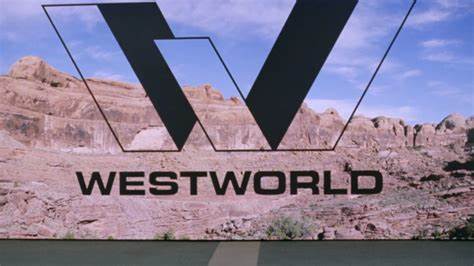I decided to spend the last few days binge watching HBO’s Westworld. As my family will attest, I like a good Sci-Fi story, especially one that can explore questions about reality and human nature. In this post, I wish to share my overall comments on the program. I promise what you are about to read will not be a regurgitation of whatever IMDB may say about the show.
Westworld is just wrapping-up its third season on HBO. This is a television show with an A-list movie budget and has lots of special effects and CGI throughout.
Insiders tell The Hollywood Reporter the overall budget for the first season of the 10-episode project is in the $100 million range… Sources peg the budget for the 90-minute Westworld pilot alone in the $25 million range, including reshoots, with some costs rolled to episode two as parts of the series debut were moved out of the premiere. (For context: HBO scrapped the entire original Game of Thrones pilot, which had a price tag of $20 million.) The per-episode budget is said to be anywhere from $8 million to $10 million.
HBO’s ‘Westworld,’ With $100 Million Price Tag, Faces Huge Expectations
Created by husband-and-wife duo Jonathan Nolan (Person of Interest) and Lisa Joy and executive produced by J.J. Abrams, Westworld features a cast of A-listers including Anthony Hopkins as the head of an ultra-realistic amusement park where visitors come to live out their most outrageous desires. The cast also includes Evan Rachel Wood, James Marsden, Thandie Newton and Ed Harris. (Hopkins and Harris are said to have scored $175,000 per episode each, with the latter potentially having only a two-year deal.)
Folks, each episode of Westworld is like a part of a tent pole movie. It may harken back to the original movie with Yul Brenner but has been completely redone.
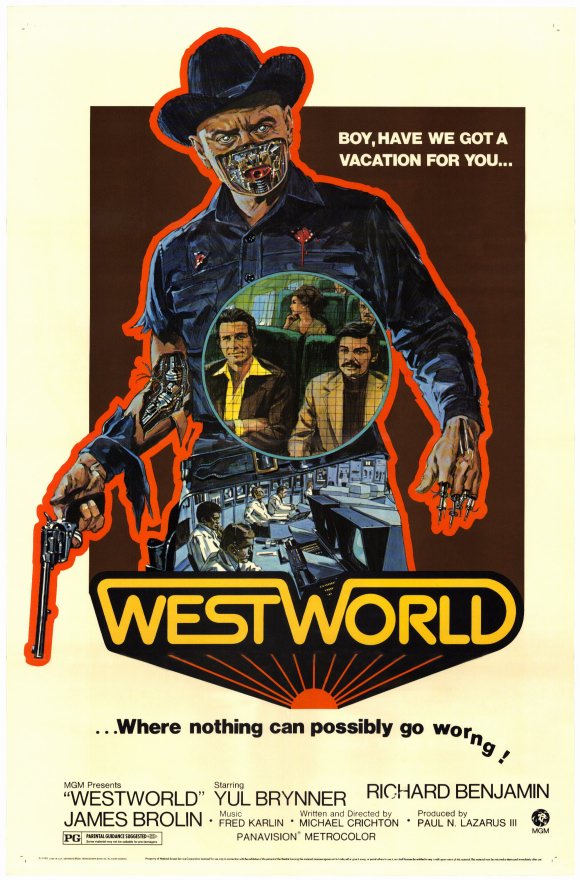
The good news is the J.J. Abrams is the director and not the one that wrote the story line, thus the show is expanded and reimagined but in ways that are more watchable than recent Star Wars and Star Trek movies which J.J. botched badly in my opinion. My complaint with J.J. is that his first act in any franchise is to blow-up the cannon (or mythology of the show) and do whatever he wants after that.
Johnathan Nolan and his group wrote the story arc which supposedly will end with the upcoming fourth season. Nolan has done many projects for movies and television. Some of the themes in Westworld, especially starting with the third season, are much like the back half of Person of Interest. In fact, the last episode that I watched prior to beginning to write this blog post included one of the recurring characters that appeared in Person of Interest. I will mention this program again later in this post.
FYI: both Westworld and Jurassic Park were novels by Michael Crichton.
I wish to mention a few of the characters in the show without spoiling any plot lines. Spoilers will come in a few minutes and with fair warning.
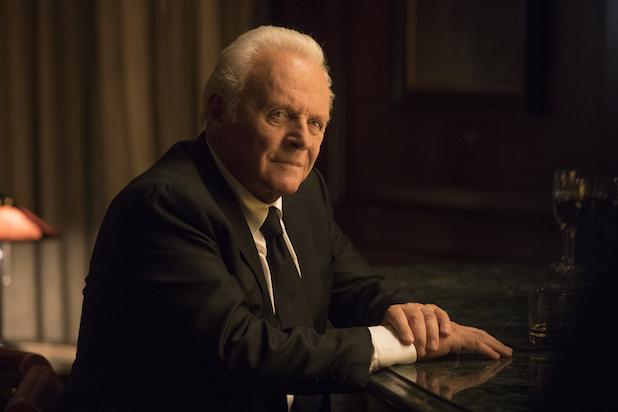
Anthony Hopkins portrays the creator of Westworld, Dr. Robert Ford. (Think Mr. Hammond from Jurassic Park.) Dr. Ford, and his now deceased partner, created and refined the androids that inhabit the amusement park. Since creative people need money to finance their ideas, this creates the opportunity for an evil corporation to voluntarily fund the Park in exchange for certain marketing opportunities. Dr. Ford is allowed to continue tinkering with his creations, as long as he keeps the Park running which he has done for 35 years now.
An android, or “Host” in this show, named Dolores played by Evan Rachel Wood is also an important and reoccurring character in the show. When you first meet her, she is clearly designated as Westworld’s damsel in distress.
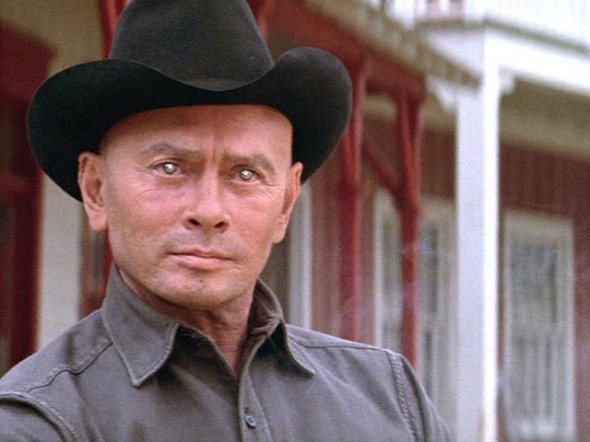
Then of course is the legendary Man in Black—Yul Brenner in the original movie—is player by Ed Harris. This character is most certainly dark and evil, but I promised no spoilers… yet. I will say that his character has been given a complete rewrite by Nolan and company.
The show is lavish in every sense of the word. As I watched, I wondered where in the world would you put a place this big, certainly not a corn field in Iowa. If you recall the original movie, there were other theme parks in the same area besides Westworld. This is touched on occasionally in the HBO series.
This show has lots of violence and naked people. Most nude bodies are being reconditioned and prepared for return to the Park but since one of the main characters runs a brothel, there is some of that other stuff too. As the seasons go by, the nudity decreases in frequency. This program is not for children or teens either. Frankly, I don’t think they are ready for some of the questions that such a program can ask or the amount of mutilation and violence.
Folks, I don’t plan to give away the whole show, but from now on, I may be giving away some plot points as I continue.
I really want to like the show and do, to a point but… I have two gripes: continuity and philosophy.
Continuity
Continuity is the flow of the story and is related to consistency both of plot and the visuals of the show.
Folks, how does a Park like this even exist? No, not the technology but the economics. The amount of damage inflicted on the androids, and their subsequent repair, would not make such a park cost effective, even in a fictional world. As much as each android costs and considering the number killed in a single episode—such as the origin story of the Man in Black—I think the expense would outright bankrupt Disney, Apple, and Microsoft combined and the Man in Black is just one guy causing mayhem in an amusement park that has seen 4 million visitors since opening 35 years ago. Seems like by the time you meet him in Westworld, the Man in Black has killed everybody in the park at least once.
Then there are all the underground access points to the park which all seem to be accessed by… walking? No way. Except for elite security guys, nobody seems to have horseless carriages to run them from point A to B.
How many floors is the main facility? Also, how come nobody knows about all the auxiliary labs in the Park full of expensive equipment. Also, if the top floor is outdoors (top of the mesa), how is it that the oldest part of the facility is in the bottom floors farthest from the surface. Why does a multibillion-dollar complex in the desert have water leaks everywhere and power but somehow no standing water or working electric lights? I kept waiting for Sigourney Weaver’s Alien or Jonesy the cat to jump out every time somebody went into the bowels of the complex and started poking around.
Lastly the park is big enough to have pine trees, deserts, snowstorms, Mt. Fuji, and jungle. No effort to explain is ever made. Like much in the show, it just is, and viewers are supposed to believe.
As far as technology goes, when is any computer hardware or software still considered cutting edge 35 years after it was created? We’re talking in terms of computing power and artificial intelligence. Yet, in Season 3 we see no robots that could pass for human—even at a glance—except for the ones from Westworld. What happened to imitation and flattery? Or Moore’s Law. In our world, after 35 years, whatever people had seen at Westworld would have been copied like crazy and due to innovation, the old technology—both hardware and software—would be obsolete. The other out the writers could take to explain this away was that the technology was outlawed but that option is not mentioned in the show.
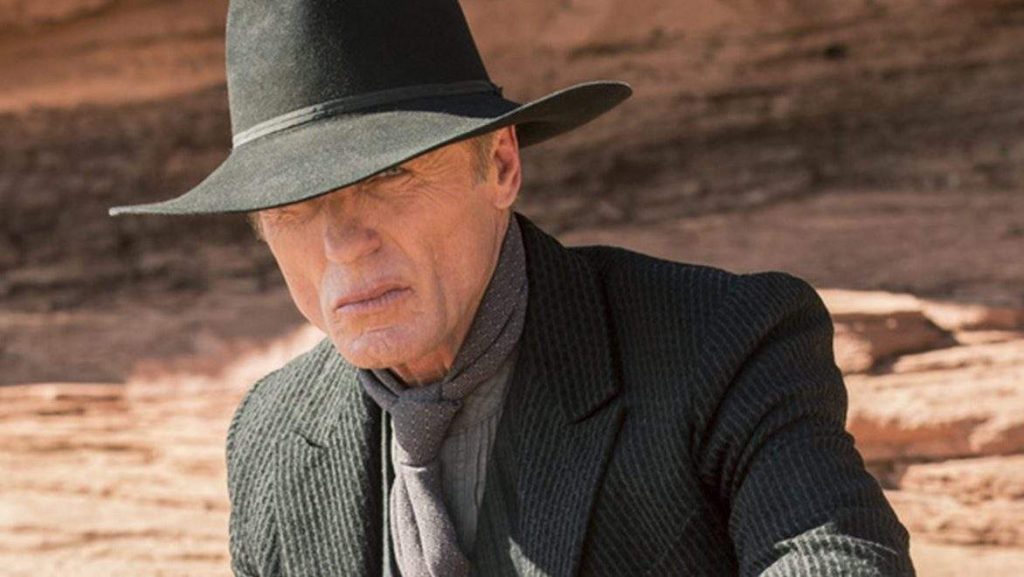
Where are backup datacenters and sources of energy for the Park? When they finally “lift the curtain” on park operations as the show goes on, they just ignore that stuff or get it really wrong. As much as the Park and its technology costs and they have no redundant systems? Destroy one bank of computers and I’m supposed to believe all the data is gone forever with no backups. Yet, this is the cornerstone of much of the action in Seasons 2 and 3.
The computers that are created by the opponent in Season 3 are big blackballs with reds lights suspended in the air—one is hanging publicly in the middle of his headquarters building and the other in a warehouse. Seems like using an RPG or the EMP weapon could have ended the whole plotline and saved HBO millions in storytelling.
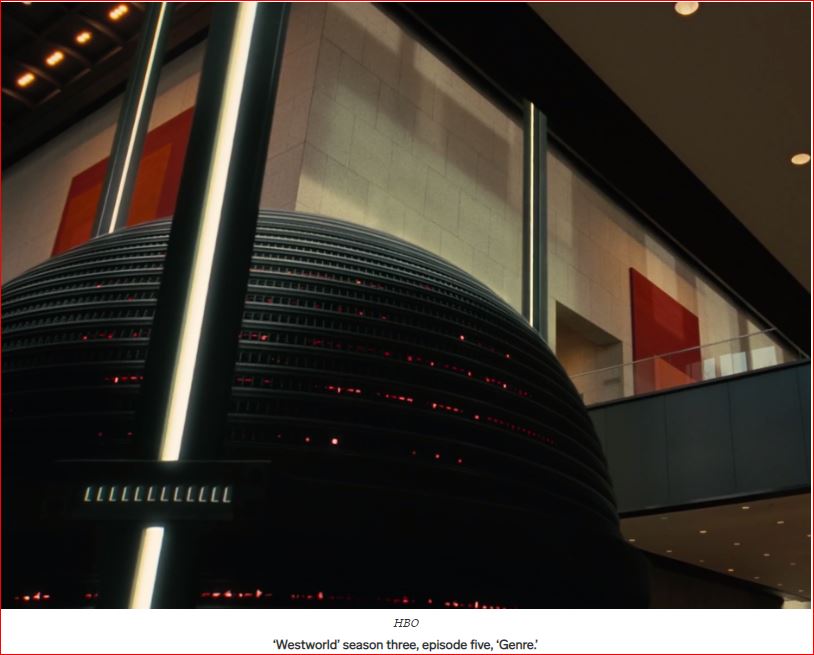
The story writers just bombard you with stuff and hope you don’t dwell on it too much as they move to the next shiny object. I guess this is ok for television writing but with a blockbuster movie budget, it seems like Nolan and Abrams would pay more attention to continuity.
Lastly, each season is full of time jumps that make following the story purposely difficult. This is done in order to introduce surprises to the viewers but don’t let the show keep running if you take a potty break or you may be asking when is it.
Philosophy
Folks, I’ve saved this section for last and feel most passionately about it. I would like to grab Mr. Nolan by the shirt collar and tell him to wake-up. While many of the right questions are asked in various places in the program, the answers offered are not only insufficient but totally wrong.
Note: From here on I beat-up on Nolan but darn it, this is more of the same worldview I get from every other program originating from entertainment corporations. Why is it that in movies and television, every corporation is evil except the one that brought us the movie/TV show that somehow deserves every dime that they can earn from royalties and ticket sales?
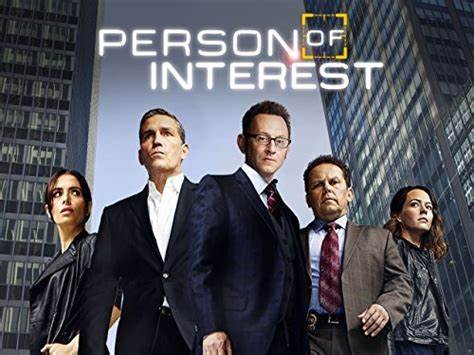
On the HBO website for the program, Westworld claims that they “will explore questions about the nature of our reality, free will and what makes us human.”
How can Jonathan Nolan do not one but two television shows on artificial intelligence and the question of what it means to be alive and not believe in a Creator? Talk about a logical disconnect! The thesis of all the elites in Nolan’s Westworld is that we are here as the result of not one mistake, but a whole series of them. His characters espouse evolution by chaos theory in a program dedicated to exploring the idea of artificial life designed and created by humans.
In a story with the scope of Westworld, I can understand different characters believing different ways about God and origins just like the real world but in Westworld all the discussions—more like monologues—are all from the same point of view no matter which character has the dialogue. Ed Harris and Anthony Hopkins go on ad infinitum about no purpose to our existence which is simply the result of errors. In these monologues, we also get a dose of Marxism claiming that those who believe in God are the unenlightened, ignorant, stupid, masses who use the opiate of theism to stay ignorant of the world around them. Those of us that believe in God are just waiting for the slaughter.
In Jurassic Park, we hear Jeff Goldblum’s character Malcolm espouse the virtues of evolution but in the book, Malcolm goes on the mock the arrogance of humans that think they control the planet. Malcolm opposed the idea of the park tinkering with genetics. As you read the passage, it is clear that at this point in the book, Michael Crichton is both providing a warning about what follows and also giving you his opinion at the same time.
In contrast, after watching three Seasons of Westworld, there is zero indication that Nolan is using science to teach a parable about the hubris of mankind. Thus far, Nolan is just a storyteller with a big budget. To me, it’s like Nolan—thru his characters—is having a tantrum and thinks if he yells loud enough then he won’t have to listen to God’s voice. However, I keep holding out a tiny measure of hope that he sneaks in “a still small voice” by the resolution of season 4 but I’m skeptical.
Instead of God, Westworld introduces the idea that a simple algorithm can be discovered to predict all human behavior. Frankly, as the idea is developed, it seems like L. Ron Hubbard is the unsung hero of this tale. The androids get the algorithm and can then predict the entire course of a human’s life down to the words coming out of their mouths in any given situation. Oh, and who they will marry, how they will die, etc. Several times thus far, one-character hands another a piece of paper or a computer pad with the dialogue typed on it before the other character has even spoken the lines. The other character is amazed that their life is that predictable.
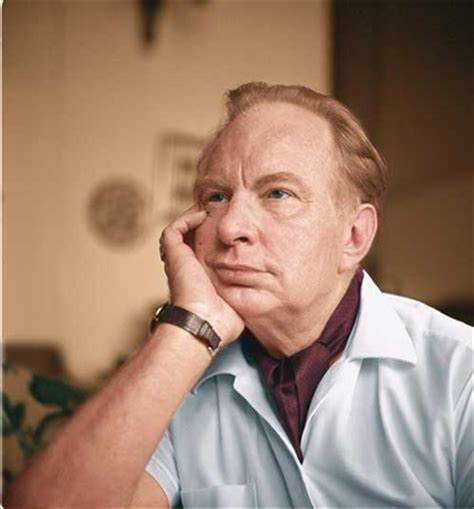
Person of Interest had “the machine” versus Samaritan, likewise in Westworld, host Delores and her allies versus evil trillionaire’s IA computer. The trillionaire wants to control everyone on the planet and anyone that falls outside the parameters that he can control is eliminated—after they are given the obligatory opportunity for conformity at a reeducation facility.
The faction of the Hosts has the algorithm from Westworld and thus have the answers to the human condition but limited resources. They desire to remake the world of humans and dominate them—how has not been explained other than they want to replace the current order with something else. Dolores at one point did proclaim that she wanted to burn down the human’s world. I think this story sounds like a thinly veiled version of Scientology bringing salvation to both men and machines, but we won’t know until they roll-out Season 4.
Just so you know, Nolan is the product of a nominally Roman Catholic upbringing and he has the reputation of using colorful metaphors when interviewed. However, at a casual search, I can’t tie Nolan to the scientology mafia that has dominated Hollywood for the last few decades. (John Travolta, Tom Cruise, etc.)
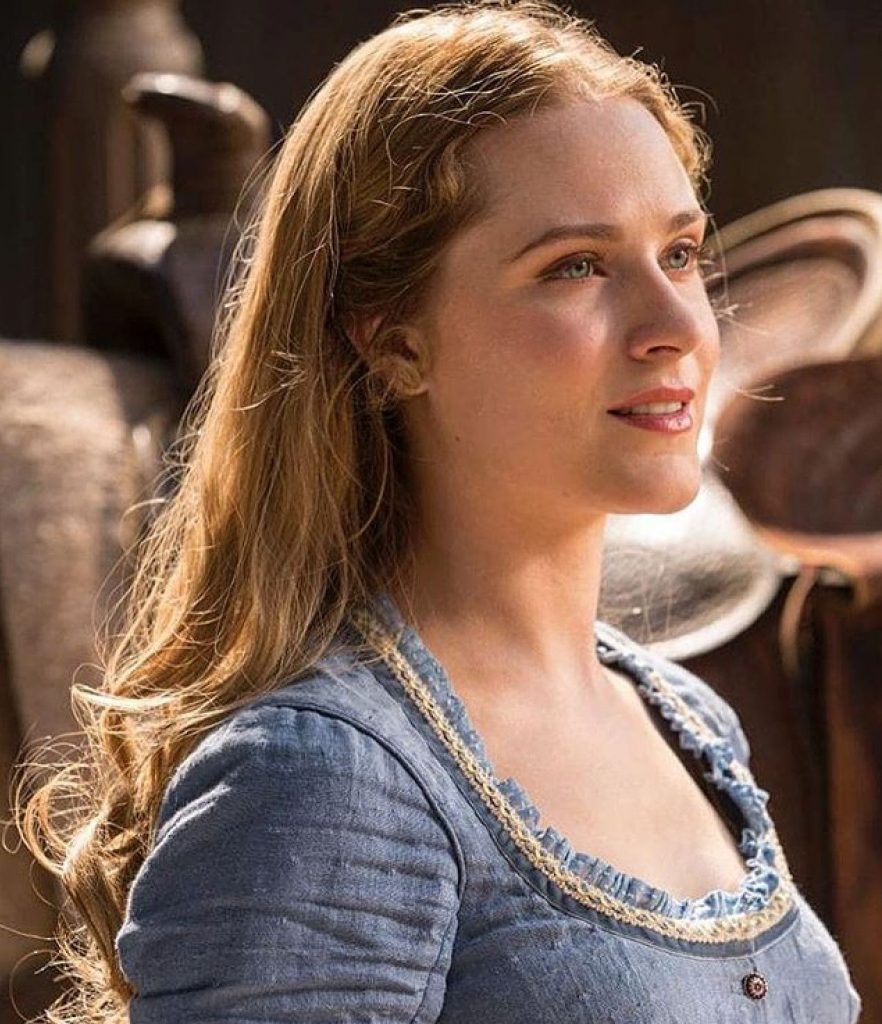
I wish to circle back to the issues that the show promises to explore, the “…nature of our reality, free will and what makes us human.”
Westworld claims to explore reality but rejects that we are made in God’s image. They have reduced man to a predetermined and even fatalistic organism that just runs in their “loop.” The hosts deny that man has any free will but the AI faction thinks that while man is just following his programming, every once in a while, free will might actually be exercised by an individual; however, such behavior is rare and might even be a bad thing.
Why can’t Nolan and company allow that we have a Creator? Even Richard Dawkins, the supposedly great leader and advocate of evolution, doesn’t really believe it is a sufficient explanation. When cornered, Dawkins finally resorted to saying that life on Earth is due to seeding of the planet by aliens and not evolution. In other words, he will accept any intelligence from anywhere as long as it’s not God. Find the video of Dawkins in Ben Stein’s Expelled (2008) if you don’t believe me.
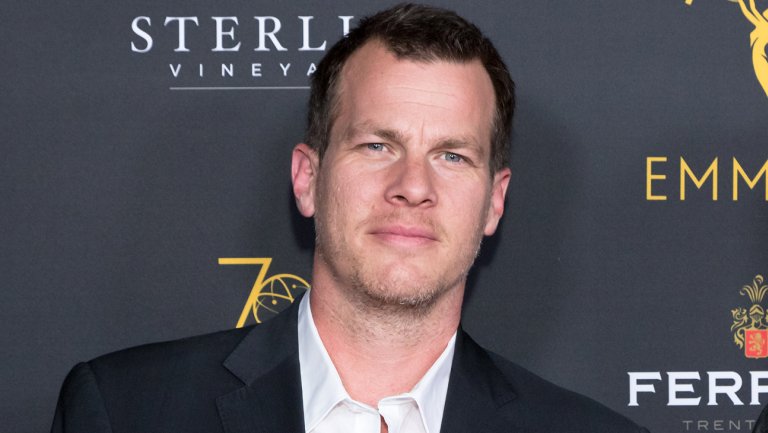
I’m not demanding that Nolan agree 100 percent with me, just that he show a little humility when dealing with such issues. Men of various faiths and cultures have debated these ideas since the beginning and for Nolan to summarily toss it all aside and say a pox on all of you is disingenuous. By rejecting that God is our creator and we his creatures, Nolan lacks any basis for evaluating reality.
Having erred on the first point, he then falls short of understanding free will and what it is to be human. Truth is most people can’t wrap their minds around these ideas. So, while we might be entertained by the sandbox Jonathan Nolan is playing in, we will end up with just another entertainment show that ultimately tells us more about what Hollywood thinks than a critique of the dystopian future that he has created. Nolan may think he is making a veiled commentary on our world—which is what all good science fiction has been in the past—but I’m doubtful whether it will hold up well over time. Westworld is worth a look but I’m not sure it has enough in it to warrant many repeat visits to the Park. Maybe when the tale is completed, I will change my mind but right now it’s not encouraging.
Season 1 & 2 are 10 episodes each while season 3 is 8 episodes, the last of which will be broadcast in the next few hours.
